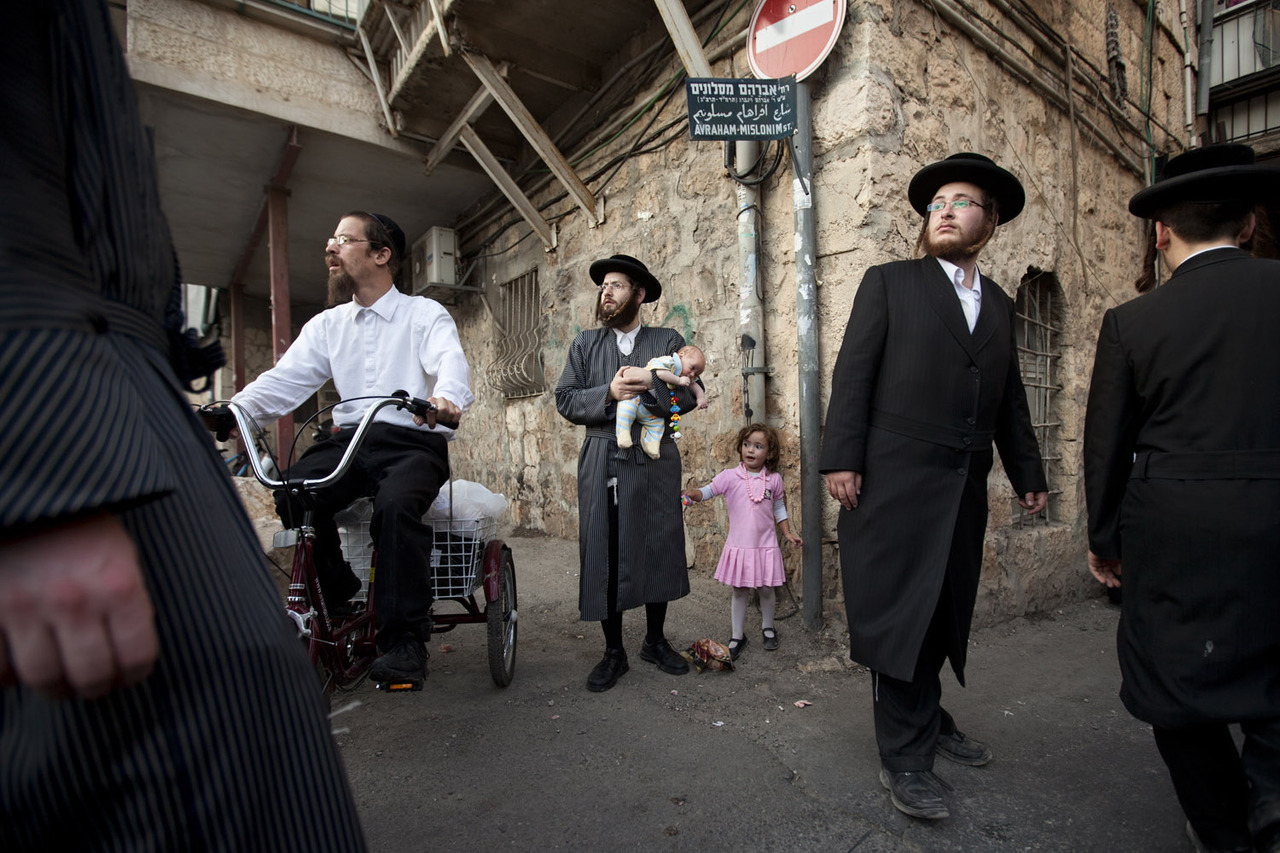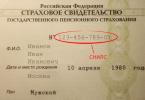Israel is a unique country in many ways. To begin with, the Jewish state emerged 3,000 years ago, ceased to exist a thousand years later, and reappeared on the world map only in the middle of the twentieth century. The oldest cities were built here, the origins of European culture and civilization are rooted on this land. And the old town in Jerusalem was, is and, we hope, will remain a sacred place for three world religions: Christianity, Islam and Judaism. With such a history and a rich spiritual heritage, Israel is a completely modern developed state with a fairly high level of legal and social protection of the population. Given the outlook, many Russians see Israel as a possible place to live in the future. However, in the field of immigration law, the uniqueness of the country is again manifested, and not everyone can become a citizen of it.
Some statistics
According to official information from the Israeli parliament, the Knesset, more than a quarter of the country's population are immigrants. The percentage of visitors among able-bodied residents is even higher. According to statistics, since the founding of Israel in 1948, more than three million Jews have immigrated to the country. At the same time, new citizens arrived in "waves": 1948-1951, the second half of the 70s, the beginning of the 90s, when 400 thousand Jews repatriated to the country. And in total, from the end of the 1980s to the present, the number of emigrants has exceeded 1.5 million people. Over the past 10 years, there has been an increase in emigration from industrialized countries such as Germany, the USA, Austria and Canada. At the same time, the number of immigrants who came to Israel from the countries of the former USSR slightly decreased. As for emigration from the Russian Federation, according to the Ministry of Internal Affairs and the Ministry of Absorption (Russian Federal Migration Service), from 1990 to 2000, approximately 300 thousand people left for Israel, and over the next decade - more than 200 thousand people. No official data has been published in recent years, but some analysts note a significant increase in emigration from Russia, including to Israel.
Azraeli Center built on the site of the old quarters
The figures given include all persons who have moved to the country. However, Israel's immigration policy is such that the number of non-Jews in the total mass of new citizens is extremely small - less than 3%.
Israeli life
The basis of the well-being of the inhabitants of Israel was, firstly, the orientation towards scientific developments and their implementation in all spheres of the economy. Secondly, foreign investments, which amount to more than 10 billion dollars a year, which is quite an impressive amount for a country with a population of 8 million people. And, thirdly, intensive highly productive work. The result was not long in coming: over 60 years of development, starting literally from scratch, Israel has reached the forefront in the world in many areas: science, education, medicine, agriculture, etc. Accordingly, the level of well-being of the population has increased. The most striking indicator of this is life expectancy. It is currently the highest in the world, at 78.9 years for men and 82.4 years for women. The state pays great attention to the development of the medical sector, which, in terms of the qualifications of the personnel employed in it and in terms of the availability of the most modern technology, competes with recognized world leaders - the United States and Germany. Also in the leading positions is Israel in the field of education. It ranks second in the world (after the US) in terms of the number of university graduates per thousand population. And Israeli diplomas of education are highly rated and accepted without any additional confirmation.

Branch of the American company Intel - the world leader in the field of microelectronics
Israel has more than sixty universities and academic colleges with about 300,000 students.
Standard of living
Given the intensive development of the State of Israel, it is easy to find a decently paid job here. The unemployment rate has been stable around 5% for a long time. However, it should be borne in mind that there are unemployed people in the country not because of the lack of work in general, but because they are looking for a more qualified and highly paid form of employment. According to the Central Bureau of Statistics, the average monthly income of workers in Israel at the end of 2015 reached 10,100 shekels (over $2,500). Given the level of prices in the country, it can be argued that the level of purchasing power is very high. For comparison, it exceeded the purchasing power in the Russian Federation by 50% before the crisis of 2014-2015.
The purchasing power of the population is the amount of goods and services that the population is able to purchase in accordance with the money available to people.
The average Israeli earns enough to rent an apartment, plentiful - and even more - food, daily expenses, buying his own home in about 10 years, as well as one or two trips to Europe or America a year. Just like in Russia, there is a minimum wage in Israel. But unlike the minimum wage of the Russian Federation, you can live with dignity on this salary.

Assuta - the largest private medical center in Israel
Youth and pensioners
Let's talk about children and pensioners. That is, about those whom we often call the vulnerable segments of the population. Only for Israel, this definition is the least suitable. Social policy is built in such a way that, on the one hand, it encourages you to work as much as possible, on the other hand, it does not encourage dependency. The more everyone works, the faster the whole country develops and grows richer, and returns to its citizens the taxes received in the form of good roads, free schools and kindergartens, medicine, various benefits, payments, etc. This, of course, is not an invention of the Israelis, but unlike many other countries, it works here!
Children in Israel are a national treasure. And this is not a metaphor, but a legislative program of the government. Therefore, everything a child needs, from basic necessities to education, can be obtained free of charge. Child mortality is very low, and according to this indicator, Israel is one of the leaders in the world. The state directs huge efforts to the physical and intellectual development of children. Every park or mall has beautifully landscaped corners. On the streets of cities every 100-200 meters you will find playgrounds intended for children. It is unlikely that you will ever see Israeli children fighting. No, of course, there are skirmishes, there is no escape from this in any country in the world, but the conflicting couple will be immediately calmed down. And not adults, but the same children!
Young people begin to acquire a specialty at school. This is followed by mandatory for all Israeli citizens, both male and female, service in the Defense Army. Men serve 3 years, women - 2. Then young people either go to work or continue their education. This can be done both in paid educational institutions and in free ones. Moreover, the quality of education and the qualifications of a young specialist will be the same.
Young people in Israel have a tradition - after the army, they spend some time traveling around the world. Everyone tries to support this tradition, secular and religious, living in cities or kibbutzim. Naturally, as far as the wallets of the parents allow.
The retirement age in the country is 67 for men and 62 for women. A pension is received by all persons who have reached the appropriate age, regardless of how and how much they worked before. Only the size of the pension for those who worked officially and paid all due contributions will be much higher. However, the pension cannot be lower than the statutory minimum, which is quite sufficient for a secure old age. Therefore, often older people while away their time in a cafe, communicating with the same pensioners. Here it is impossible not to mention the Israeli counterparts of Russian nursing homes. These are public or private institutions where many older people voluntarily move. And the attitude of society towards this is completely normal and adequate. The fact is that Israeli nursing homes are more like a four-star hotel with the appropriate service (care). And the old people in them are often better in a team of their own kind than to exist alone. But wherever an elderly person lives, in the case when it is difficult or impossible for him to take care of himself, the state attaches a nurse (guide) and pays for her services. In addition, older people wear special bracelets, through which, if necessary, you can call an ambulance.

Israeli pensioners do not deny themselves pleasure: they go to the cinema, dine in restaurants, often communicate with each other
Women in Israeli society
Many are interested in how women live in Israel. Let's just say: no worse than men. Jews have always had a special relationship with women. Since ancient times, it was they, and not men, who were the bearers of the identity of the nation. And at present, in Israel, only those who have a Jewish mother are considered a Jew by blood. Therefore, the level of legal and social protection for women, and even more so for mothers, is very high. For example, any man who raises his hand against a woman ends up in prison without lengthy proceedings. It comes to the point that men begin to grumble, being powerless against the false accusations of unscrupulous girlfriends. And more than once in the Knesset discussed the issue of eliminating the "surplus" in the legislation in favor of women.
Despite the fact that the average salary of women in general is 10% less than that of men, this does not indicate any kind of discrimination. For the same work, both women and men receive the same. It's just that women in Israel more often agree to less qualified, but also less profitable work, as they are more forced to be distracted by their families and children. However, the state fully compensates for the lower income with benefits and subsidies.
The Israeli police force is over 30% women. Moreover, there are even more of them in the patrol service than men. One and the leaders of the police - a woman, Major General Inna Wolf. By the way, a native of the former USSR.
Russian emigrants in Israel
The word "Russian" in Israel and Russia means different things. In the Russian Federation, a Russian is a person whose parents, or at least the father, were Russians. In Israel, a Russian is a person of any nationality, including Jewish, who speaks Russian. Therefore, when you hear or read that there are 2 million Russians in Israel, keep in mind that we are talking about Russian-speaking Jews. However, there are also ethnic Russians here, whose number is more than 200 thousand people. These are the following categories:
- Orthodox Christians who moved to the Holy Land before the revolution or immediately after it. Their descendants rarely speak Russian anymore and are fully integrated into Israeli society.
- Citizens of the Soviet Union of Russian nationality who professed Judaism. They moved in communities first secretly to Palestine, then, in the 80s of the last century, already openly - to Israel. Now they live mainly in kibbutzim.
- Family members of Jewish repatriates.
- Immigrants who have acquired or citizenship are a very small group.
- Persons illegally residing in the territory of the State of Israel.
There are no official statistics on these population groups, however, according to the report of the Ministry of Internal Affairs, Russian-speaking husbands and wives of repatriates make up about 7% of their total number, that is, about 35 thousand people. Another 6,000 ethnic Russians have acquired citizenship or the right to permanent residence in Israel. Data on illegal immigrants are contradictory - according to various sources, their number ranges from 8 to 23 thousand. In 2011, the Eretz Israel Foundation conducted a study of the national composition of immigrants and their age. The table shows only data related to arrivals from the Russian Federation.
Table: age structure of migrants from the Russian Federation to Israel in 1990-2010
* data are given as a percentage
From the above data, it can be seen that the average age of migrants who arrived from Russia to Israel has decreased mainly due to persons of retirement age. At the same time, the percentage of children and young people has increased.
Where is the best place to live?
It is hardly possible to give an unambiguous answer to this question. Here everything depends on the migrant himself, his mentality, aspirations and, of course, financial capabilities. If a person, coming to Israel, has a firm intention to integrate into society, learn the language, work officially, etc., then by and large it does not matter where he settles. In this case, other factors will be decisive. For example, the cost of living. If the price of food, clothing and other necessary things in all stores in Israel is approximately the same, then the prices for similar housing in Jerusalem and some small town will differ several times. The location of the work is also important. Despite the fact that the infrastructure is well developed here, in recent years traffic jams have appeared in large cities - Jerusalem, Tel Aviv, Haifa. Therefore, it is wise to choose a place of residence near work. So, in fact, do the Israelis themselves, who do not have a strong attachment to an apartment or house, as in Russia. The main thing for them is work!

Jerusalem is a unique city in all respects. Center of political and religious life
The length of high quality roads is about 20 thousand km. For a country measuring approximately 450 by 130 km, this is an outstanding result.
However, not all emigrants from Russia put in enough effort to learn Hebrew. The reasons for this are different - and unwillingness to strain a lot, and lack of time. Yes, everyone has different abilities. In this case, we recommend purchasing or renting housing in places where the concentration of the Russian-speaking population is maximum. We list the main ones:
- Haifa. It is a city in northern Israel, the third largest in the country after Jerusalem and Tel Aviv. industrial capital of the country. Became the immigration center of the 90s. Here you can find inexpensive housing, enough work.
- The city is 10 minutes south of Tel Aviv. The population is 150 thousand people, of which less than 84% are Jews, which is very small for Israel. Many immigrants from the countries of the former USSR live here, but also many refugees from Africa. It is believed that this is the most cheerful city in the country, where life is in full swing around the clock on the Ben Gurion embankment. Bat Yam attracts with low real estate prices, as well as great opportunities in terms of work, which are due to the proximity of industrial centers such as Tel Aviv, Rishon Lezion and Holon.
- For those who are close to the socialist idea, the best solution may be a kibbutz - a kind of commune in which, in short, everything is in common. There are hundreds of kibbutzim in Israel, among them there are Russian speakers.

Embankment Ben Gurion in Bat Yam
Video: features of life in a kibbutz
Is there a Russian diaspora?
It should be noted that the Russian diaspora in its classical sense does not exist in Israel. The fact is that the vast majority of immigrants are Jews, and that small number of ethnic Russians (Ukrainians, Belarusians, etc.) is clearly not enough to create any social institutions that support and develop their community and identity.
30 km from the capital of Israel, Jerusalem, is the oldest city on Earth - Jericho. Its age exceeds 10 thousand years.
Sabras and goyim
Sabras (Hebrew tsabar) are the native inhabitants of Israel, those who were born in the Promised Land. This concept is often opposed to another - goy, that is, not a Jew. Moreover, both persons of other nationalities, including Russians, and ethnic Jews who do not observe religious rules are not Jews. According to Israeli law, all citizens of the state have equal rights regardless of ethnic origin. Other persons legally residing in Israel have the same rights, in addition to voting rights. But this is only in theory. In practice, non-Jews may encounter problems when applying for a job, when applying to government agencies and some others. The fact is that the country is very strongly influenced by religious groups - Orthodox and ultra-Orthodox, who are trying with all their might to push the idea of a Jewish state through the Knesset. And if at the household level it is hardly possible to encounter a manifestation of nationalism, then in contacts with the authorities it is quite likely.

Orthodox Jews
What can be expected in the future? It all depends on which parties will have a majority in parliament. So, if 60 years ago there were 18 religious deputies in the Knesset, now there are already 40 of them. But this is not enough to pass laws that can significantly restrict the rights of the goyim. And it is not a fact that even if the Orthodox win the parliamentary elections, such laws will appear soon. After all, it is known that the Palestinian issue has been resolved for almost 70 years, but without much success.
Israel still does not have a Constitution, although in every election to the Knesset, candidates for deputies promise voters to accept it. And each composition of Parliament postpones this act, leaving it to the discretion of the following deputies.
First-hand information: feedback from migrants
In order to more fully imagine what life is like in Israel, we bring to your attention excerpts from the author's conversations with three of our former compatriots. So, Vladimir, 52 years old, lives in Bat Yam:
I am Russian, and I was not going anywhere from Russia, but my child fell ill. The doctors advised the maritime climate. Then the wife - she is Jewish - offered to temporarily move to Israel, and after the treatment, if you do not like the new life, return. We arrived in 1996, the son recovered a long time ago, served in the army, graduated from the university, got married, gave birth to a granddaughter, and we still live here. I received citizenship a long time ago, my wife received aliyah (state - author's note), and I, as the husband of an Israeli citizen. I know Hebrew well, I can also read and write. My wife's language is much worse, as she works in a hairdressing salon with Russian-speaking clients and simply does not have the necessary practice. I work as a freight forwarder. The salary is 20 thousand shekels for two, official, that is, with all taxes and insurances. We don’t have our own apartment, but we bought as many as 3 in Russia, we rent it out. I know Israel well, but I am not a fan of traveling. In twenty years, I have been to Jerusalem three times, a couple of times to the Dead Sea... But every summer I go on vacation to Stavropol, where my relatives have stayed. The wife at this time is resting in Austria or Switzerland. After what happened to the dollar in Russia last year (2013 - author's note), we are thinking of selling apartments and forgetting about returning to Russia.
Now Mark's review, aged 26, lives in Haifa:
My parents brought me to Israel 15 years ago. The family is purely Jewish, but not religious. He graduated from high school, served three years in the army, received the profession of an aviation technician. After that, he left for Canada, where he rested and had fun and studied English for two years. Now I work at Ben Gurion Airport. The salary is good, 16 thousand shekels, but the work is very hard - you have to go out at night and on Shabbat (Saturday, the day when Jews cannot work - author's note). Yes, and travel far - about 100 kilometers. I'm thinking about working in Haifa, in the port. The salary, of course, is less, but more free time for training, because I want to get a web designer specialty. I'm not going to get married yet. Plans for life: I will work for three years, gain experience in programming and go to work in the USA or Canada. There are higher incomes.

Young people rest on Shabbat
Finally, Nathan, 64, has just purchased an apartment in Petah Tikva, an industrial suburb of Tel Aviv:
In Soviet times, he held a fairly high position. But as soon as perestroika began and the gate for leaving the USSR opened slightly, he immediately moved to Israel under the repatriation program. I studied the language while still in Moscow, in the ulpan (Hebrew school - author's note) at the synagogue. By profession - and I'm a biologist - I did not work. After serving in the army for several years he was an international observer for the UN in hot spots. Then he organized a company and took tourists to local attractions. Now I am privately engaged in medical tourism. I work from eight in the morning, or even earlier, until nine in the evening. Income up to 4-5 thousand dollars, but this is after 10 years of business promotion. And before months there were no clients. A few years ago he divorced his wife, but remained good friends. Excellent relationship with my daughter. I am satisfied with life, only the only wish is that the work is easier. Almost every year I fly to Moscow - my sister stayed there. All tried to transport her to Israel, but she does not want to. Well, everyone has their own way ... And I hope that all the best is yet to come.
Video: who lives well in Israel?
Different people, different destinies… But what unites the interviewees is the absence of any regret from the fact that they live in Israel. Even the young man Mark, who is going to America, goes only to earn money, and not to emigrate. It's probably indicative.

The Dead Sea is the lowest place on the Earth's surface
Pros and cons of living in Israel for Russians
If you are considering Israel as a likely immigration destination in the future, it will be useful to evaluate all of its major advantages and disadvantages. Let's make a reservation right away that Russians here are Russian-speakers of all nationalities, with only one condition: they have acquired the right to legal residence and work on the territory of the State of Israel. So, how can life in the Promised Land be good for Russians?
Pros:
- Climate and environmental well-being. In this country, there is a wide choice of residence in zones with different natural conditions - from humid Mediterranean to dry desert or high mountains. At the same time, air and water contain negligible substances harmful to humans.
- Safety. Extremely low level of crime, including street crime. In all cities of Israel, you can safely let children go outside for a walk at any time of the day.
- Democracy and the high development of civil society - the latter is primary in relation to the state.
- Priority of laws. Probably not for all Russians, given their mentality, this is a plus. However, obedience to the law is necessary for the development of society and the state, and you quickly get used to it.
- High quality of life.
- Developed infrastructure - roads, transport and other communications, as well as an abundance of recreational areas.
- Advanced medicine and welfare.
- State care for children, women, the elderly.
- High educational and cultural level.
- The highest concentration of historical and religious monuments in the world.
- Tolerance and peace-loving Israelis, their desire and ability to negotiate on any controversial issues.
Minuses:
- Very hot summers and strong winds, sometimes with sand, in winter.
- The country is at war with radical Palestinian organizations, so terrorist attacks are likely.
- Enhanced security measures and checks at the entrance to any more or less significant institution.
- Compulsory study of Hebrew.
- The strong influence of religion and religious organizations on the life of society and politics.
- The need for intensive work.
- High real estate prices in large cities due to lack of land.
- country isolation. The borders with Egypt, Jordan, Syria and Lebanon are effectively closed, and all other countries can only be reached by plane.
10 unusual facts for a Russian in Israel (video)
So, what can be said in the end about Israel for Russians? A pleasant country in many respects, where people, including Russians, live no better and no worse than in most highly developed countries of the world. A society of worthy people who have been taught by two thousand years of forced emigration and persecution to be smart, strong, worthy and hospitable. Therefore, the choice of Israel as a country for immigration can be considered quite successful.




